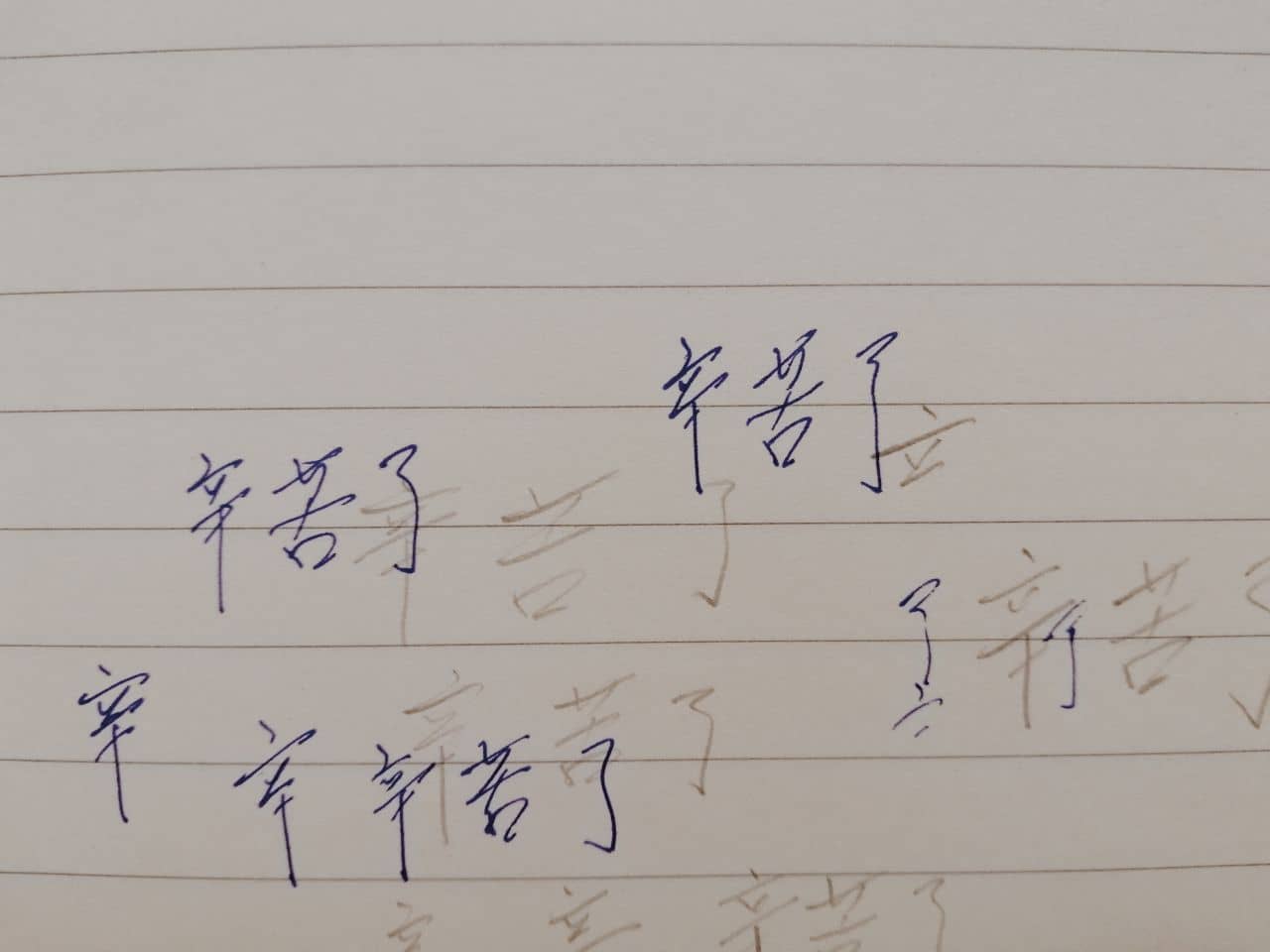I’ve recently gone back to school to study Chinese (taking it more seriously this time). Our classes are long and demanding. Every weekday, two sessions per day. Every session is split into three 45-minute periods with 10-minute breaks in between. If you’re familiar with the Pomodoro Technique, this is that on steroids. It totals to roughly five hours a day. It gets pretty wild.
Right after almost every session, our professors would say to us, “辛苦了 (xīn kǔ le).” Lately, it’s become one of my favorite sounds, so much so that I’ve found myself saying it to myself.
The term “辛苦” literally means “to work hard” or “to toil.” It usually connotes a sense of exhaustion or struggle. The “了” at the end simply turns it into past tense, so 辛苦了 would mean “you’ve worked hard.” This is a common expression used in school and at work to show appreciation or acknowledgement after a long day.
This expression really clicked for me once I understood it more deeply, especially when we compare it to its English counterpart. In English, we’d usually say something like “good job” or “nice work today.” There is a subtle but significant difference.
The difference lies in the target of the praise. “Good job” or “nice work” looks at the result. Although we don’t always mean it this way, the language is clear. What is good or nice is the job or the work done, the effect.
On the other hand, 辛苦了 looks at the input and the effort. It almost ignores the results entirely. In this case, what matters is you’ve put in the work.
This takes me back to a book I read a while back: Mindset by Carol S. Dweck. In this book, psychologist and professor Dweck introduces the fixed mindset and the growth mindset.
Basically, having a fixed mindset is to believe that our intrinsic abilities and talents are what determine our potential. We’re either good at it or not, therefore challenges would be terrifying because they put our abilities to the test. The growth mindset, on the other hand, looks at challenges as opportunities for growth. Meaning, our potential lies not in what we’re born with, but in how willing we are to learn, grow, and work to get to a goal.
In this book of countless references to research and experiments, there’s one specific study on praise that stuck with me:
We conducted studies with hundreds of students, mostly early adolescents. We first gave each student a set of ten fairly difficult problems from a nonverbal IQ test. They mostly did pretty well on these, and when they finished we praised them.
Excerpt From: Carol S. Dweck. “Mindset: The New Psychology of Success (Updated Edition).
We praised some of the students for their ability. They were told: “Wow, you got [say] eight right. That’s a really good score. You must be smart at this.”
We praised other students for their effort: “Wow, you got [say] eight right. That’s a really good score. You must have worked really hard.” They were not made to feel that they had some special gift; they were praised for doing what it takes to succeed.
Both groups were exactly equal to begin with. But right after the praise, they began to differ. As we feared, the ability praise pushed students right into the fixed mindset, and they showed all the signs of it, too: When we gave them a choice, they rejected a challenging new task that they could learn from. They didn’t want to do anything that could expose their flaws and call into question their talent.
Now, I’m not a psychologist and you might want to take all of this with a grain of salt, but I do think that language shapes our worldview and vice versa. What continues to fascinate me is how the way our language has primed us to speak reveals, albeit in subtle ways, the collective psyche of our culture. This particular case is obviously only a simple representation (and really is just my own interpretation) but still, the lesson stands.
The effort counts. In an increasingly demanding global culture that is so focused on results and improvement and impact and getting ahead, I think this is an important reminder that we all need to hear. Yes, the output is important. Yes, we should still audit that. But on the days when getting yourself up to work and face a screen the entire day, there is value in acknowledging the process, regardless of the result.
On those days we’d count as unproductive L’s, there is virtue in being our own source of praise. Only you know how much work you’ve actually put in. Only you know the real struggle.
辛苦了, 辛苦了.

